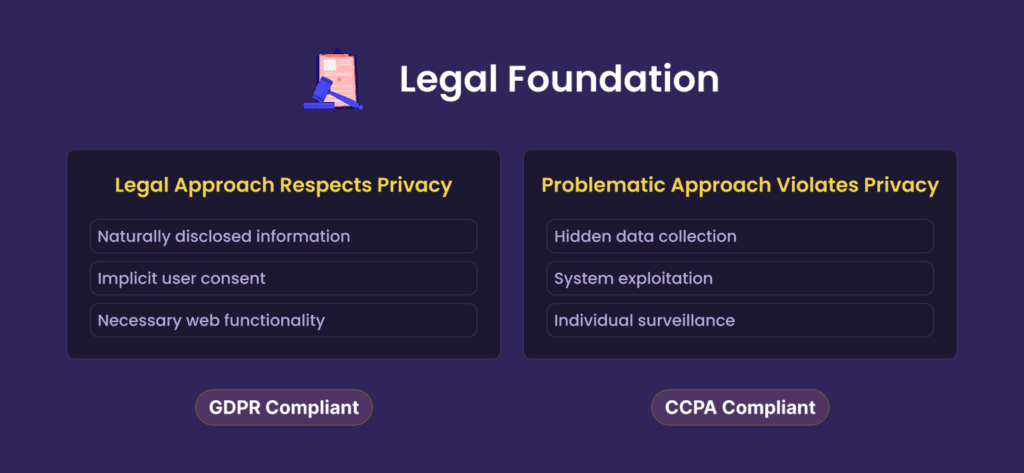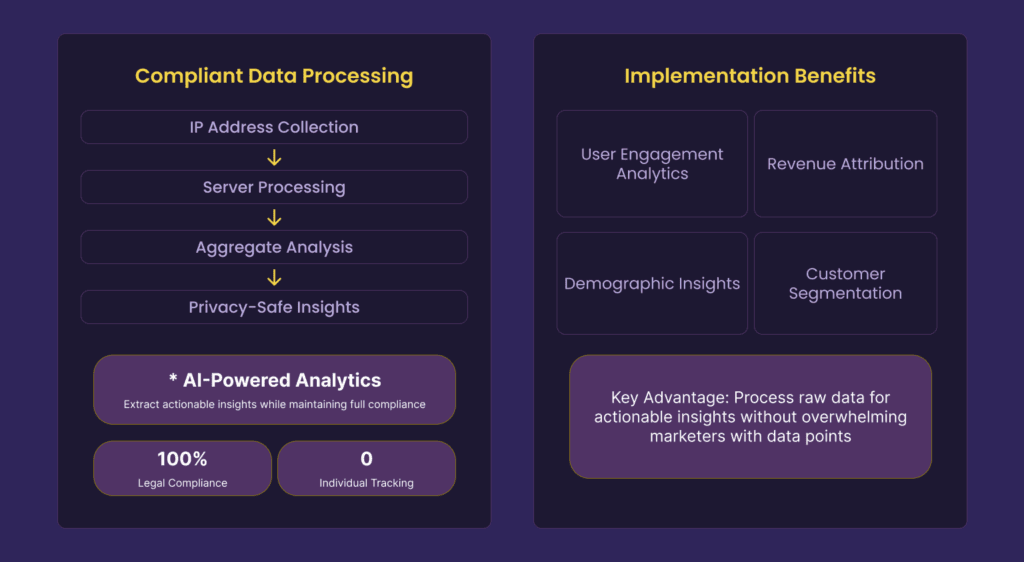With browsers implementing stricter cookie restrictions and privacy laws tightening globally, many marketers are discovering server-side tracking as a potential solution. But a critical question emerges: if server-side tracking enables data collection despite these privacy updates, is it actually legal?
The Legal Foundation: Spirit vs. Letter of the Law
The legality of server-side tracking hinges on understanding what privacy laws actually aim to protect. According to industry experts, it’s not about “hacking the system” that companies like Google have built, it’s about respecting the fundamental principle behind regulations like GDPR and California’s user privacy laws: the expectation of privacy.
Server-side tracking operates within legal boundaries because it focuses on naturally disclosed information. When users visit a website, they must share their IP address with the server to load content. This isn’t hidden data collection, it’s a necessary part of web functionality that users implicitly consent to when browsing.

Compliance Through Responsible Data Handling
Watch industry experts explain the legal framework of server-side tracking:
Discover how server-side solutions maintain full compliance with privacy regulations while delivering enhanced marketing insights.
The key to legal server-side tracking lies in how the collected data is processed and used. Unlike traditional tracking methods that may focus on individual user behavior, compliant server-side solutions emphasize aggregate analysis. This means examining user patterns as groups rather than tracking specific individuals, which is an approach that aligns with privacy law objectives.
For example, while Google Analytics removes IP addresses from reports to protect user privacy, server-side tracking can capture this information legally. However, responsible implementation means using this data for demographic insights and customer segmentation rather than individual surveillance.
Enhanced Control Equals Greater Responsibility
Server-side tracking actually offers better privacy protection than traditional methods. By processing data on dedicated servers before sharing with third parties, companies maintain greater control over user information. This enhanced control, however, comes with increased responsibility to ensure data protection throughout the entire process.
The technology enables marketers to unite fragmented user sessions and gain clearer visibility into customer journeys, all while maintaining compliance with privacy expectations. Current implementations show particular success in user engagement analytics, though revenue attribution remains an evolving challenge

The AI-Powered Future of Compliant Analytics
The real opportunity lies in applying artificial intelligence to the raw data collected through server-side tracking. This approach doesn’t overwhelm marketers with more data points. Instead, it processes information to extract actionable insights that can be delivered through enhanced Google Analytics reports or custom dashboards.
Curious about implementing server-side tracking while maintaining full legal compliance?
Master Compliant Server-Side Tracking
Learn how to implement server-side tracking within legal boundaries.